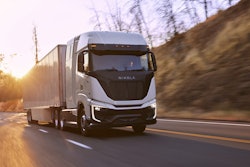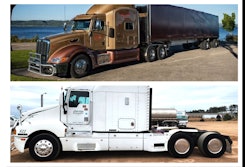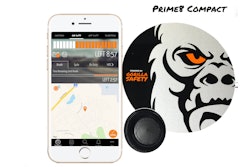Trucking news and briefs for Wednesday, May 14, 2025:
Following driverless truck deployment, Texas lawmakers eye ban
In the wake of recent news that autonomous truck developer Aurora is hauling driverless with Uber Freight and Hirschbach in Texas, lawmakers in Texas are considering a ban of fully driverless trucks in the Lone Star State.
The bill, HB 4402, was introduced in late March and on May 10 emerged from the Texas House Committee on Transportation. It would, if passed, require a human operator to be physically present in any commercial vehicle operating with the autonomous driving system engaged.
The bill does clarify that non-commercial autonomous vehicles would be allowed to operate in Texas with or without a human operator.
Similar legislation has been passed twice in California, only to be vetoed both times by Gov. Gavin Newsom.
As reported early this month, Aurora began regular driverless customer deliveries between Dallas and Houston and, at the time, had completed more than 1,200 miles without a human driver. The company noted that it plans to expand its driverless service to El Paso, Texas, and Phoenix, Arizona, by the end of 2025.
For the driverless truck ban to become law, the bill still needs to pass the full House and the state’s Senate, then be signed into law by the governor.

[Related: Aurora says it's hauling driverless for Uber Freight, Hirschbach between Dallas and Houston]
New York to expand use of weigh-in-motion tech for trucking-company fines
The New York City Department of Transportation announced that the state’s 2026 budget authorizes the use of weigh-in-motion (WIM) sensors in an additional 14 locations in New York state, including nine city-owned bridges and highways managed by NYC DOT.
In 2021, the state gave NYC DOT exclusive authority to use such sensors to enforce penalties against overweight vehicle owners on the Brooklyn Queens Expressway (BQE). The technology uses roadway weight sensors and enforcement cameras to issue violations to overweight vehicles, and resulted in a 60% reduction in overweight vehicles on the BQE, NYC DOT said. WIM enforcement on the BQE began in 2023.
New York City Deputy Mayor for Operations Jeff Roth looked forward to expanding what he called “this effective tool" across the city. “This will help us prioritize work and protect our infrastructure in the long term. That is government innovation at its best.”
In addition to BQE Route I-278 in Kings County (Atlantic Avenue to Sands Street), WIM is now authorized for the following areas, owned by NYC DOT unless otherwise noted:
- Greenpoint Avenue Bridge over Newtown Creek
- Metropolitan Avenue Bridge over Newtown Creek
- Hamilton Avenue Bridge over the Gowanus Canal
- Williamsburg Bridge
- Ed Koch Queensboro Bridge (State Route 25)
- Third Avenue Bridge over the Harlem River
- Manhattan Bridge
- Long Island Expressway (I-495) over Woodhaven Boulevard
- RFK Bridge (Non-NYC DOT-owned in NYC)
- George Washington Bridge (Non-NYC DOT-owned in NYC)
- Bear Mountain Bridge (New York State-owned outside NYC)
- Newburgh Beacon Bridge (New York State-owned outside NYC)
- Mid-Hudson Bridge (New York State-owned outside NYC)
- NYS Thruway Interchange 34-A near Syracuse (New York State-owned outside NYC)
[Related: NYC cracking down on overweight trucks with automated weigh-in-motion enforcement]
Pennsylvania milk haulers could get OK to operate during winter road restrictions
The Pennsylvania Senate last week passed a bill that would allow milk haulers to operate within the state during weather-related commercial vehicle travel bans and emergency declarations.
Under Senate Bill 481, commonly referred to as the Milk Hauler Exemption Bill, milk transportation vehicles would be permitted to move on highways 24 hours a day, seven days a week during such restrictions, provided they display a one-time decal issued by the Pennsylvania Milk Board.
“The dairy industry operates around the clock, and cows don’t stop producing milk because of bad weather,” said bill sponsor Sen. Judy Ward. “This legislation ensures that our dairy farmers can get their product to market without unnecessary delays, preventing waste and supporting our agricultural economy.”
Ward noted that the bill addresses concerns raised by dairy producers in her district who have previously been forced to discard milk due to transportation restrictions during emergencies. By allowing milk haulers to assess road conditions and make informed decisions, the legislation aims to balance public safety with the practical needs of the dairy industry, she said.
The bill passed the state Senate on May 7 and is currently with the Pennsylvania House Committee on Transportation. It will need to pass the House and be signed by the governor to become law.
[Related: 'We don't give directions': How GPS is changing our social selves]










